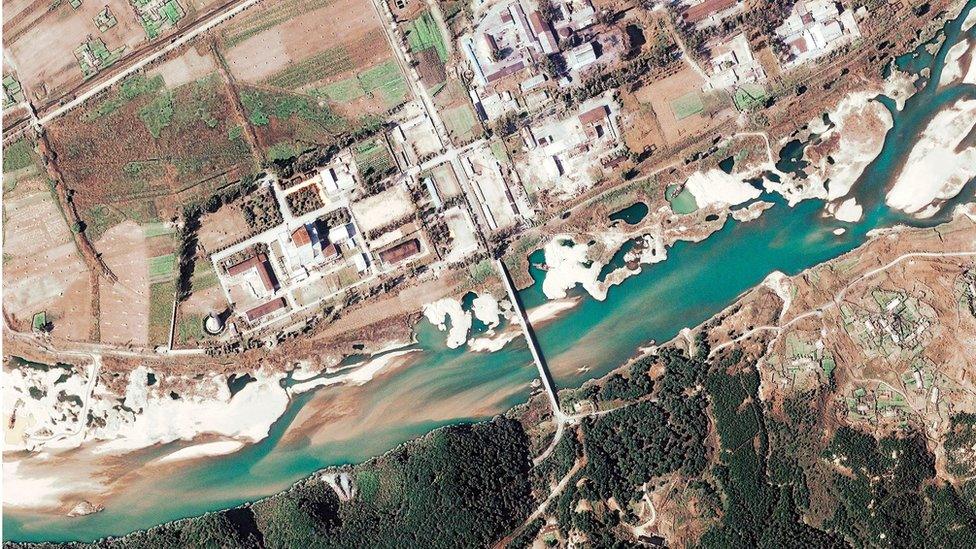North Korea crisis: Putin and Abe call for talks
- Published
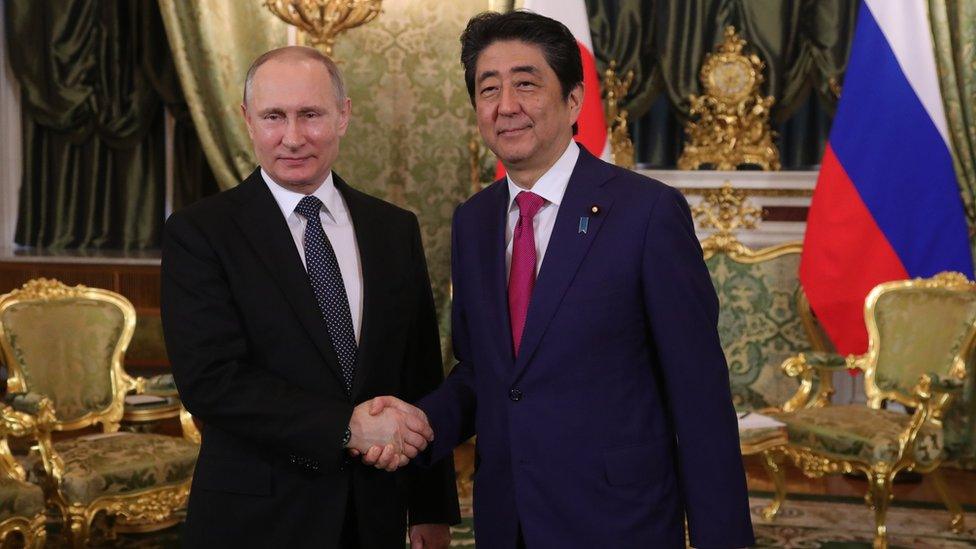
President Vladimir Putin and Prime Minister Shinzo Abe both called for calm
Russia's Vladimir Putin has called for the resumption of talks with North Korea as tensions on the peninsula continue to escalate.
Speaking in Moscow, where he met Japanese Prime Minister Shinzo Abe, he urged those involved to "refrain from using belligerent rhetoric".
Mr Putin said both wanted to see "peaceful, constructive dialogue" between the opposing parties.
Relations between North Korea and the US have plunged in recent weeks.
The two countries have traded angry words and threats as North Korean leader Kim Jong-un persists with missile tests, despite repeated warnings to stop.
This week, the US announced it was set to activate a missile defence system in South Korea "within days", and tighten sanctions against the secretive state.
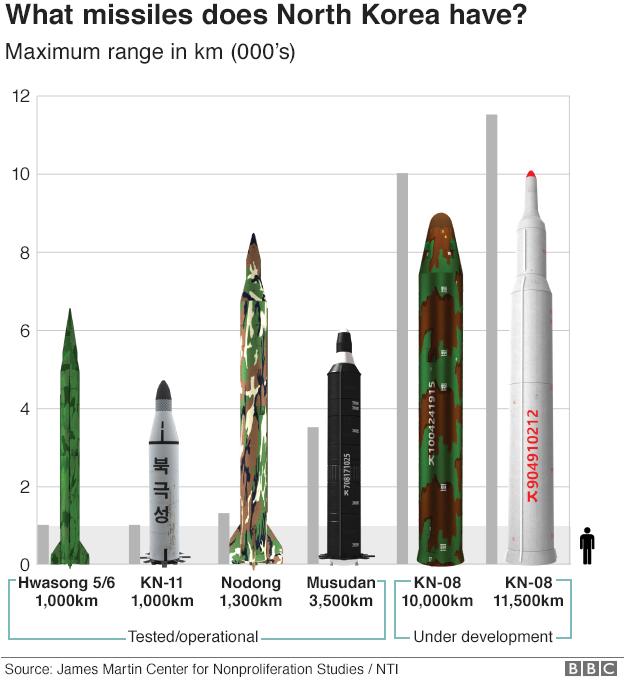
It came after President Donald Trump announced the US was sending a naval carrier group to patrol the Korean peninsula.
North Korea, meanwhile, threatened to launch a "super-mighty pre-emptive strike" against what it called US aggression.
North Korea is also believed to be on the verge of conducting another nuclear bomb test.
Washington fears it could develop a nuclear device small enough to fit on a long-range missile which could reach the US, though some experts say this is some way off.
But if North Korea did decide to launch a missile attack, neighbours South Korea and Japan could be targeted.
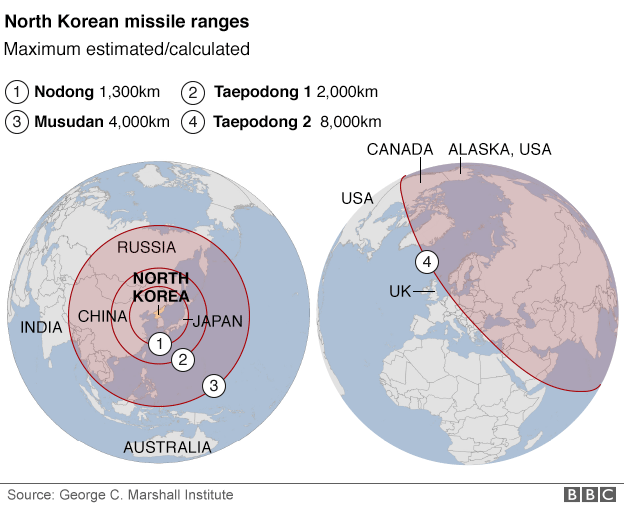
Mr Abe is keen to ensure the situation does not deteriorate further.
Speaking on Thursday, Mr Putin said: "In my opinion, and in the opinion of the prime minister, the situation on the Korean peninsula has unfortunately got a lot worse.
"We call on all governments involved in regional matters to refrain from using belligerent rhetoric and to strive for peaceful constructive dialogue."
- Published27 April 2017
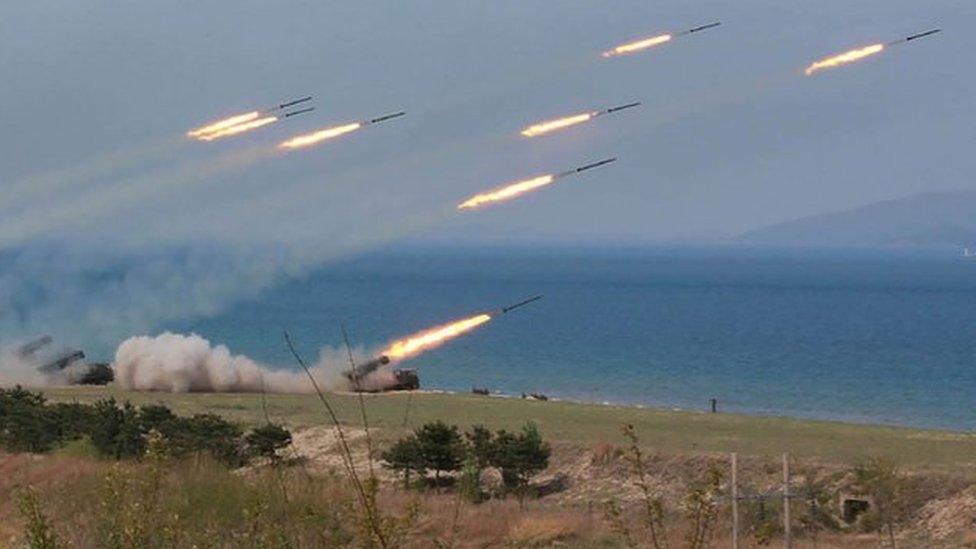
- Published26 April 2017
- Published4 July 2017
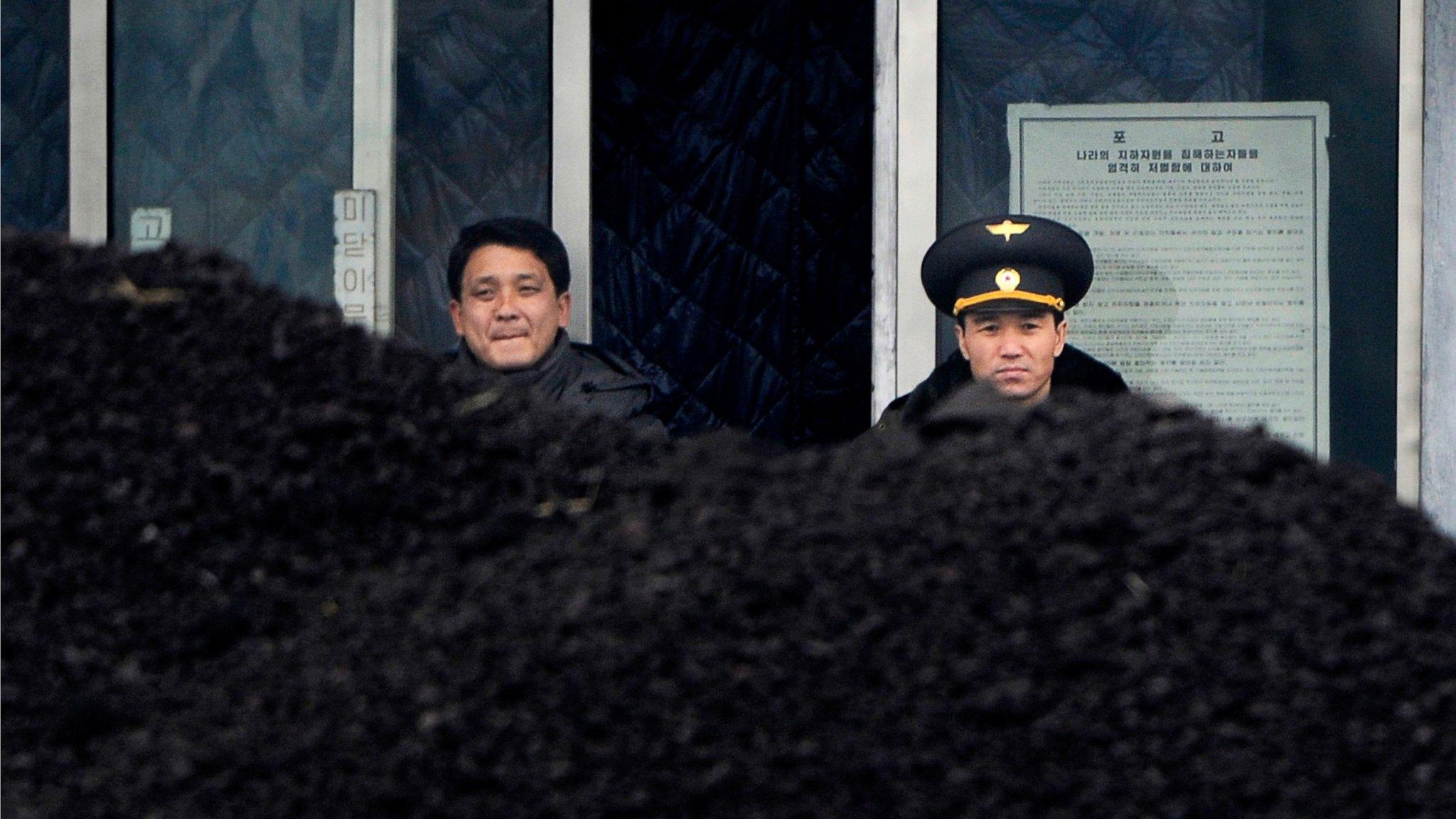
- Published21 April 2017
- Published10 August 2017
- Published10 August 2017
